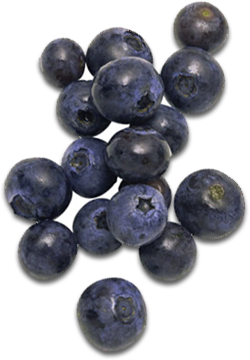no items to display
Mental Health Check-in & Tips to Gain Mental Space
Life can be overwhelming and sometimes doing the basic things like brushing your teeth can feel like too much effort. Here is a quick check-in to see how you’re doing and 5 tips to bring some relief.
Check-in with yourself regularly with these Mental Health questions and cues:
- How are you feeling right now?
- How often have you had low moods in the past few weeks?
- Do you struggle to finish everyday tasks?
- How are your personal relationships right now?
- When was the last time you were happy?
- How often are you moving your body (walking, dancing in your kitchen, bike riding, etc.)?
- How often do you spend time worrying?
How was it answering these questions?
If you feel like your outlook is not great at this moment, take a moment to reach out for help. Meeting with someone who is neutral and not within your friend, family or work circle is crucial to connecting the dots and understanding why you are feeling the way you do. Sometimes we need a bit of clarity to help us get unstuck and move forward and there is no shame in that.
United Kingdom NHS & Other Resources – link to local resources page
 Photo by Ümit Bulut on Unsplash
Photo by Ümit Bulut on Unsplash
Tips to Gain Mental Space
Practicing self-compassion and self-respect to improve your mental health.
- Remember the basics
- Get enough sleep – between 7-9 hours a day depending on your activity level, age, and condition.
- Eat foods that make you feel well in your body – this is different for everyone, so get specific and keep track of what foods bring you a light mood versus the ones that make you feel cloudy, tired, and exhausted
- Move your body every day – get up and go for a walk outdoors and get your face in the sunshine. Even 5 minutes is worth it!
- Hydrate – I know it’s easy to forget to drink water, but sometimes we only eat dry foods, crackers, breads, and that means not much liquid going into the body. Focus on including soups and stews to your diet to add in more liquid to your body. Even a herbal tea can be comforting as well as hydrating.
- Community – connecting with people in real life is vital to us humans. Even if you don’t feel like it right now, try to get out to see people or invite someone over for 10 minutes. And if nothing else, a phone call to hear a familiar voice can be soothing.
2. Put away digital devices!
Being on a device pulls us away from the present moment, so we are out of touch with our physical surroundings. Being online isolates us from our community and this can create loneliness and anxiety.
Here are 3 reasons why digital does not bring you forward.
- Digital Addiction
You will get dopamine hits as you review people’s posts and give out likes and hearts, then move on to check 20 emails, giving us the sense that we are achieving something.
Being addicted to this dopamine hit makes us want to reach for our device every 5 minutes creating constant distraction from being able to do normal everyday tasks. Feeling like we’ve already accomplished something reduces motivation to complete other important tasks.
- Monkey Mind
Information overload – receiving streams of information from Instagram, Facebook and newsfeeds keeps the mind full… actually over-stuffed; then we need a lot of time to “digest” that information.
Facts, gossip, pseudofacts – since these information streams contain mostly opinions from “experts”, we need to assess what to believe and what not to. This thinking is an effort. Thinking takes energy away from us, even though we may not realise it.
- Blue Light
Reduces sleep quality – the light from a device is very similar to sunlight. It reduces the amount of sleep hormones our body creates, making it more difficult to get restful sleep. Without adequate sleep, our mood will not be joyous.
 Photo by Louis Hansel on Unsplash
Photo by Louis Hansel on Unsplash
3. Stop Restrictive Dieting
Being on a restrictive diet tends to take a lot of joy away from us, especially if each time we eat three or more times a day we assess, make food choices, and restrict. If you are experiencing low moods and feeling tired, consider how much time and mental energy a restrictive diet may take.
What is a restrictive diet?
Removing or reducing large food groups. This includes, for example:
- No or low carbs
- High-fat or low-fat
- High-protein only diets
Eating a well-balanced and healthy diet is great for a happy body and mind, and heavy restrictions on ourselves can result in:
- Brain Space – every time we watch what we eat, or restrict what we eat, we make a decision. There is something called, “decision fatigue.” It is real, it takes up energy and precious space in our brain.
- Negative Self-talk – every time we eat something we shouldn’t, we often beat ourselves up with negative self-talk. As you can imagine, negative self-talk is not great for our mental state.
- Nutrition deficiencies – having a varied and balanced diet is so important to our physical and mental health. When we restrict, we could be missing out on important nutritional components. Eating fruits and vegetables along with well-balanced amounts of carbohydrates, protein, and fats, will lead you on a better path. Even adding in some indulgences from time to time helps us feel free and happy. Get guidance from a nutritionist or health professional if you’re not sure what balance looks like.
4. Practice Self-Compassion
There was a time, where I didn’t really understand what this meant and how it could help me. It sounded all a bit silly, until I hit a tough time with family, work, and my health. Everything hit at the same time, and I was filled to the brim with information on what I needed to do, but did not enough time to put it into action, and I was exhausted.
So, I googled “self-compassion”, downloaded a few meditations, and started to practice this foreign concept.
Here is how Kristen Neff, leading expert in Self-Compassion defines it, “With self-compassion, we give ourselves the same kindness and care we’d give to a good friend.”
I think this is something you need to just do a few times and feel the effects. For me, this is what I experienced:
- I felt a mind shift from overwhelm towards calm (not all the time, but for moments at a time, giving me relief.)
- I started to be kinder towards myself and be less harsh when I didn’t do something right.
- When I meditated, I could feel myself smiling.
I highly recommend! Google Tara Brach and Kristen Neff, experts in meditation and self-compassion practices.
There are many things to choose from in this article. Please don’t be overwhelmed. You don’t need to do them all to have great mental health. Skim the article to see what sounds good to you or piques your curiosity and then give it a go.
And please don’t forget to ask for help. (HUG)
I found that most often, it was the person who I least thought about who was there for me.
I am rooting for you!
Vanessa
Health Coach






